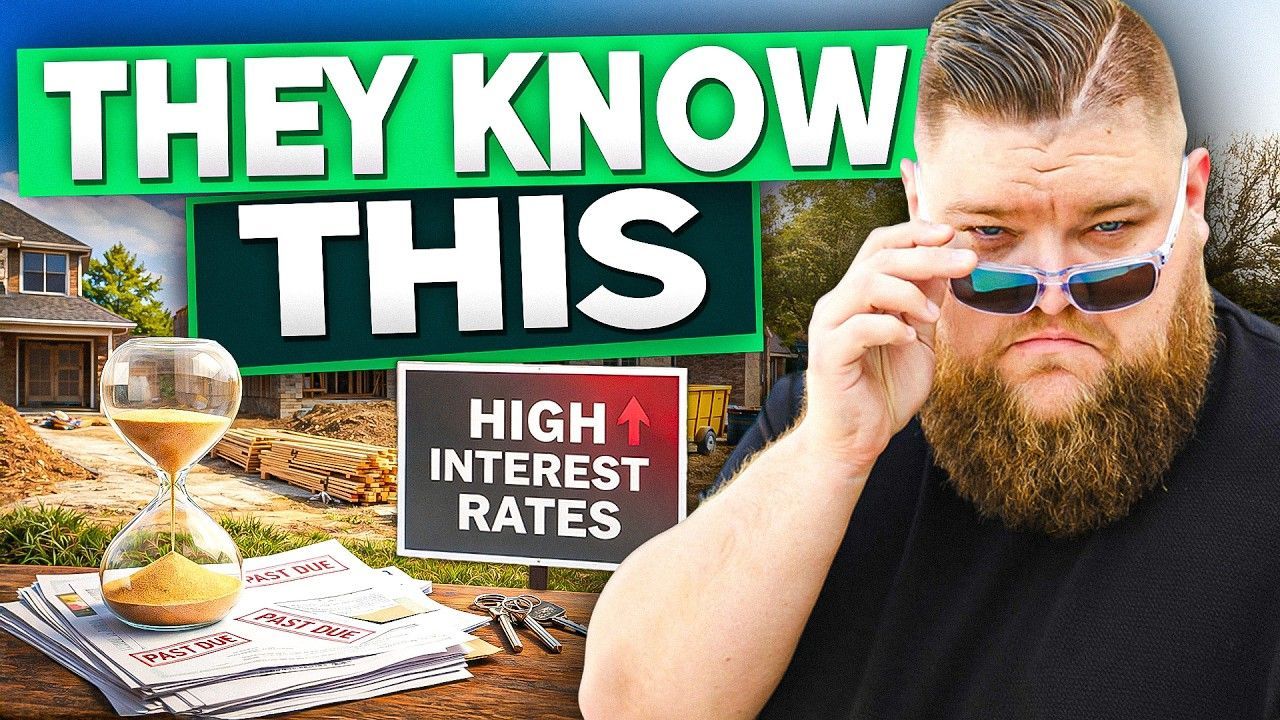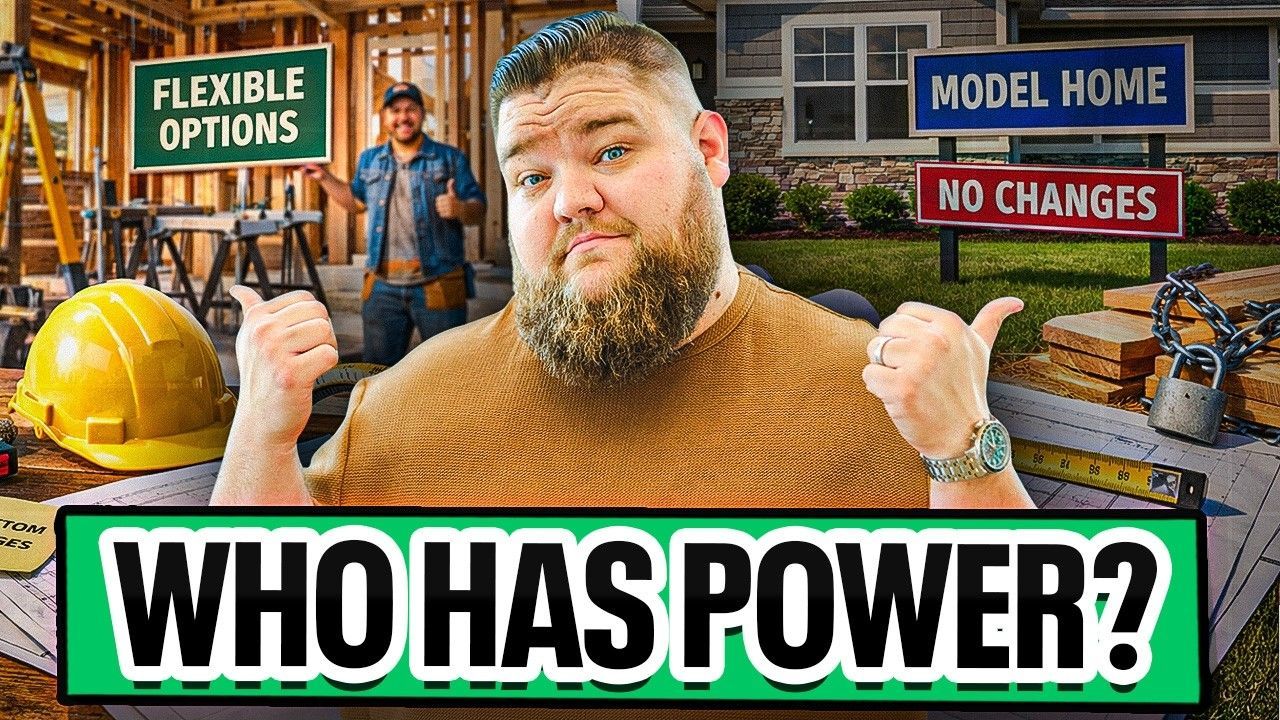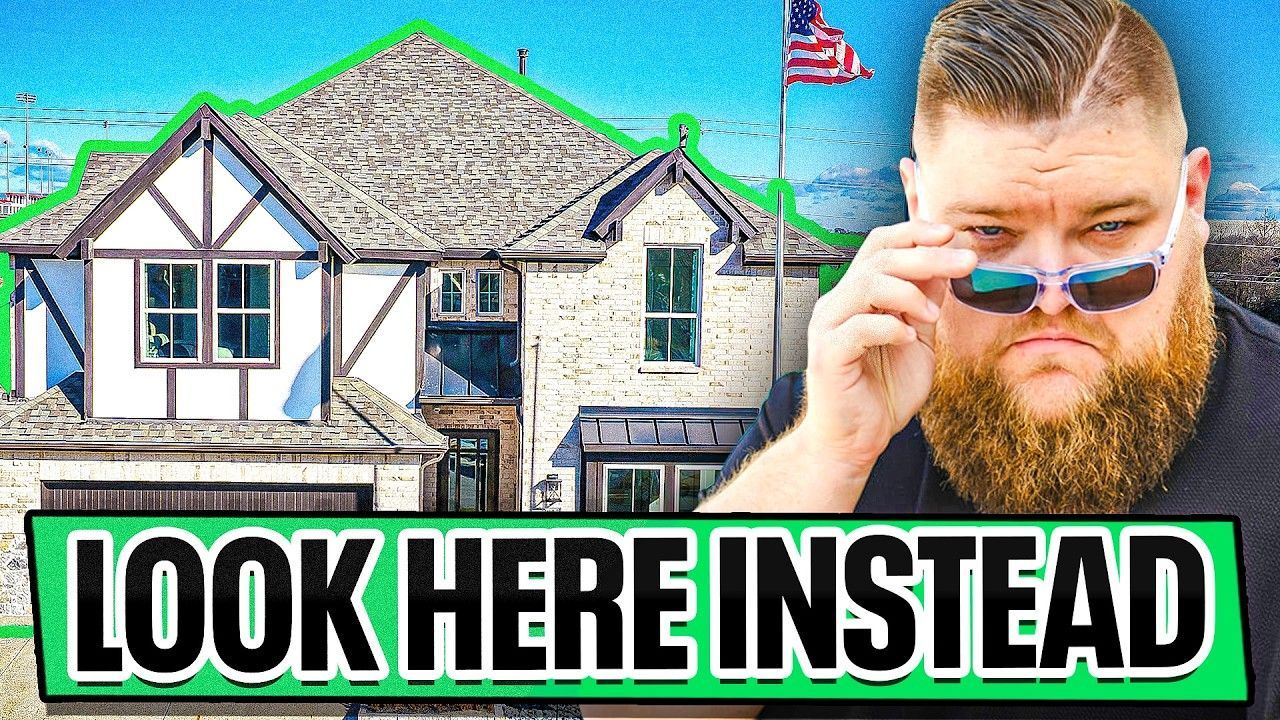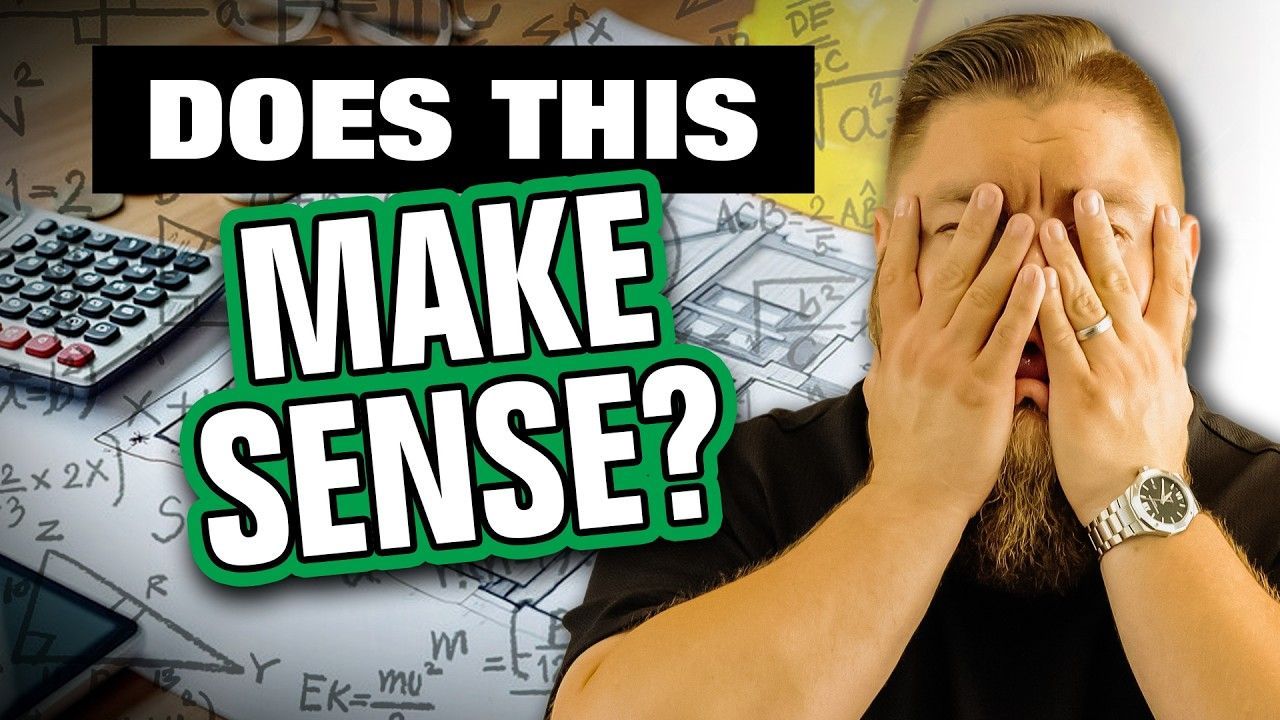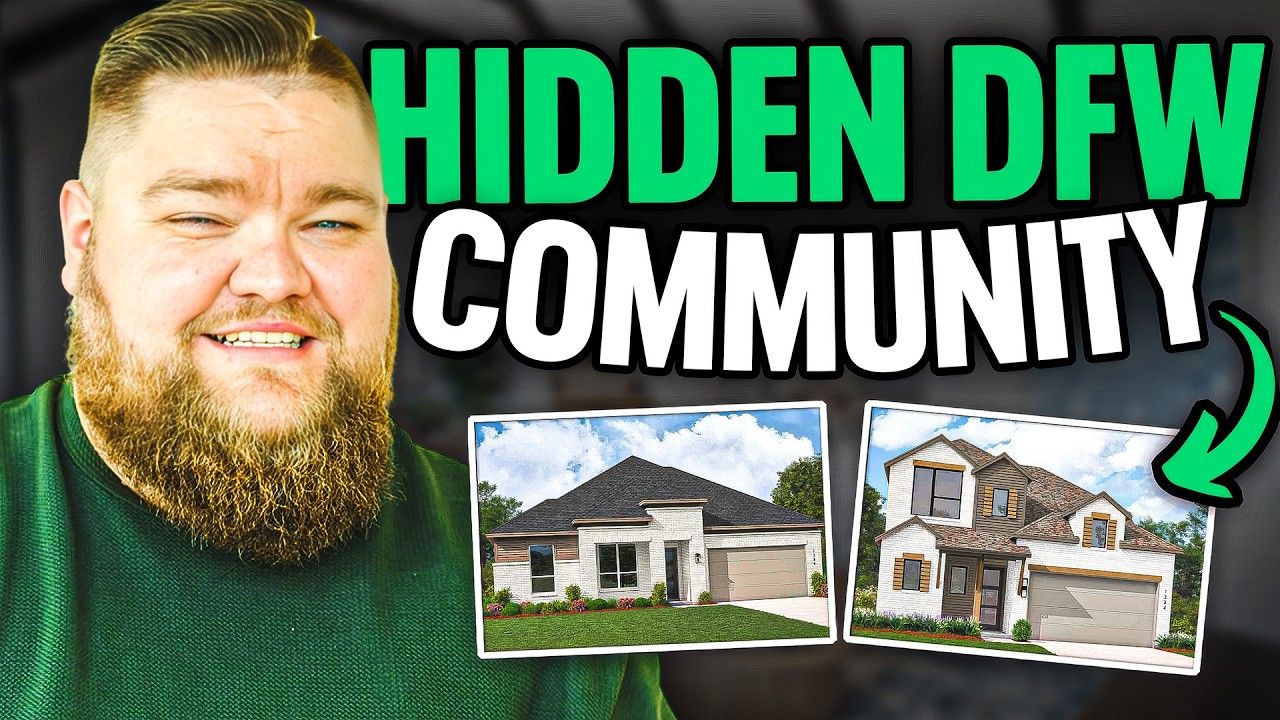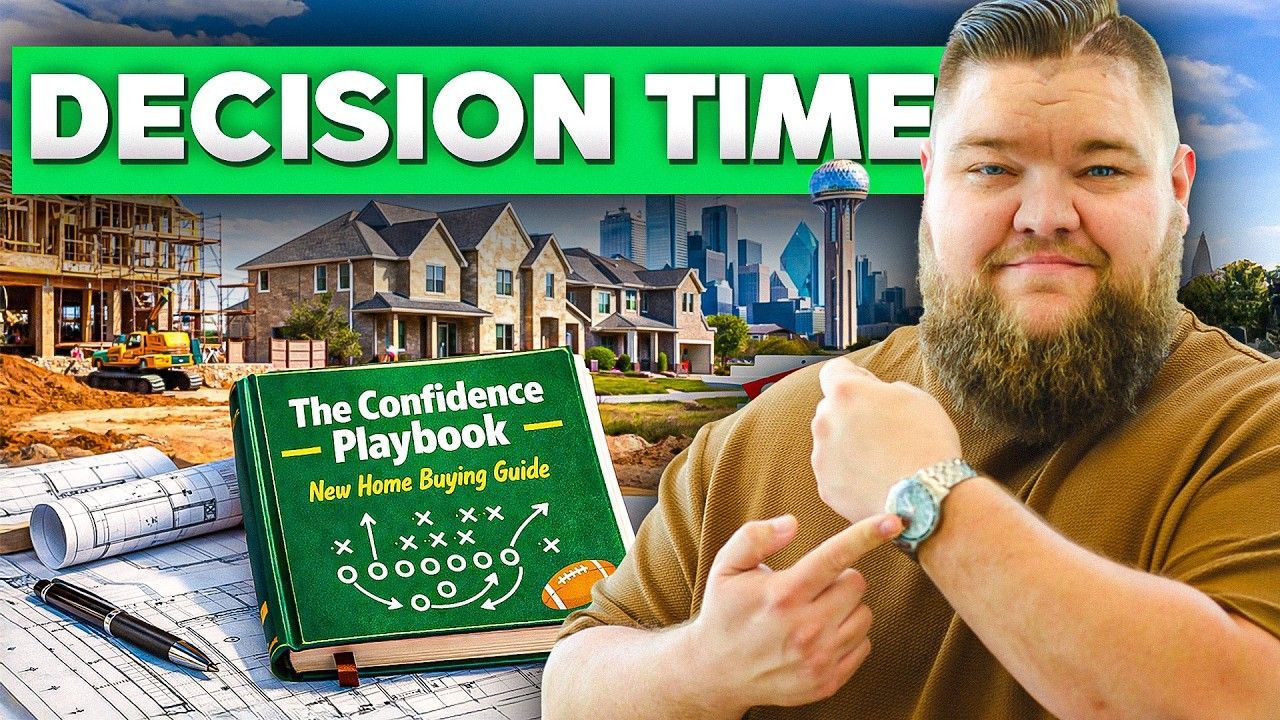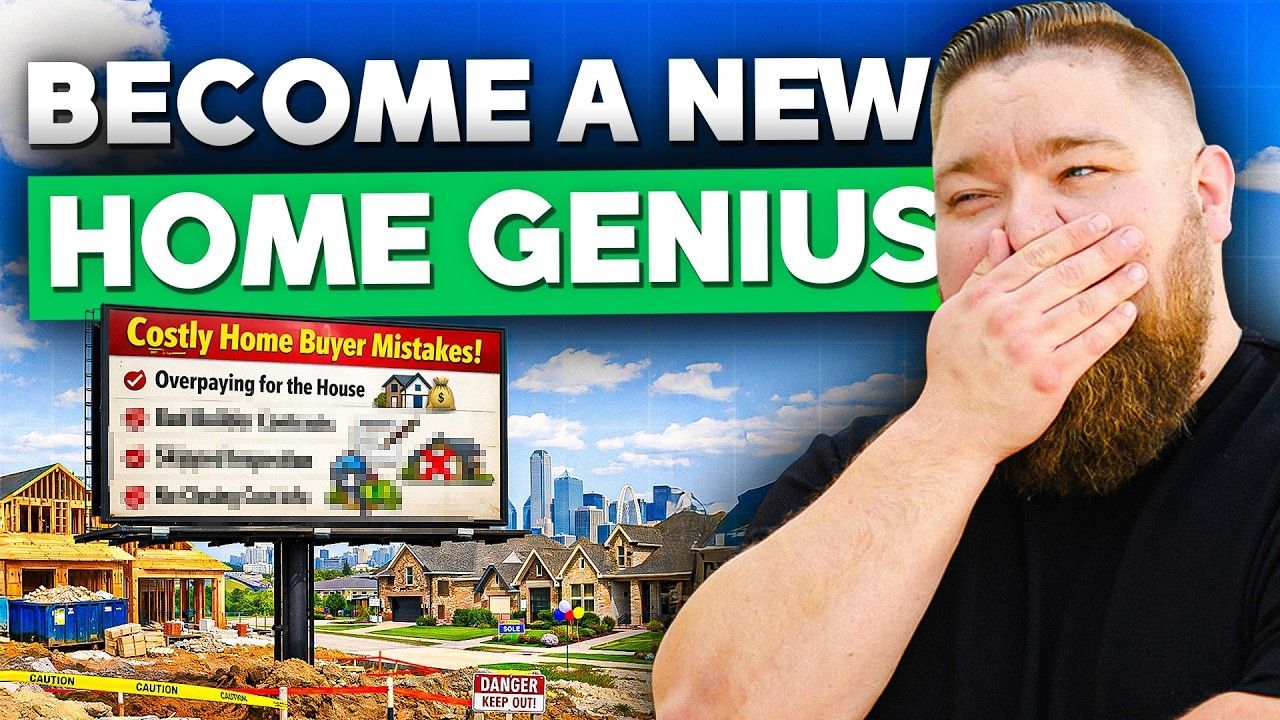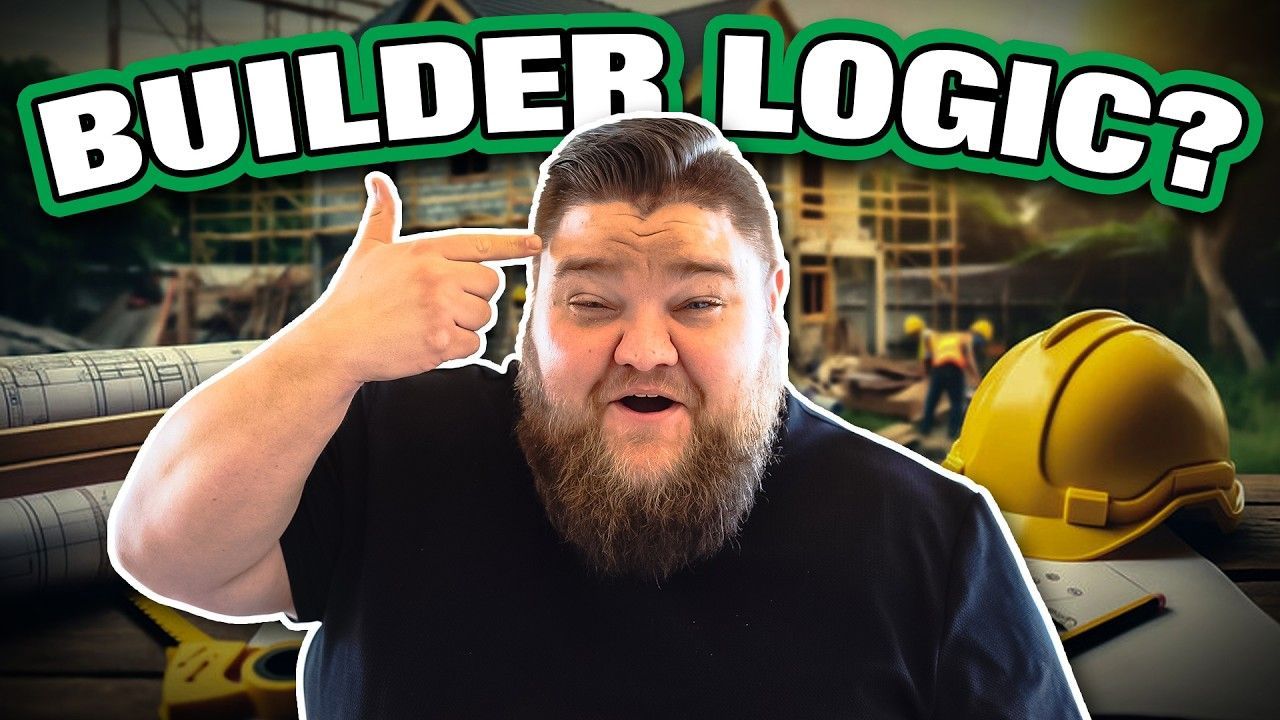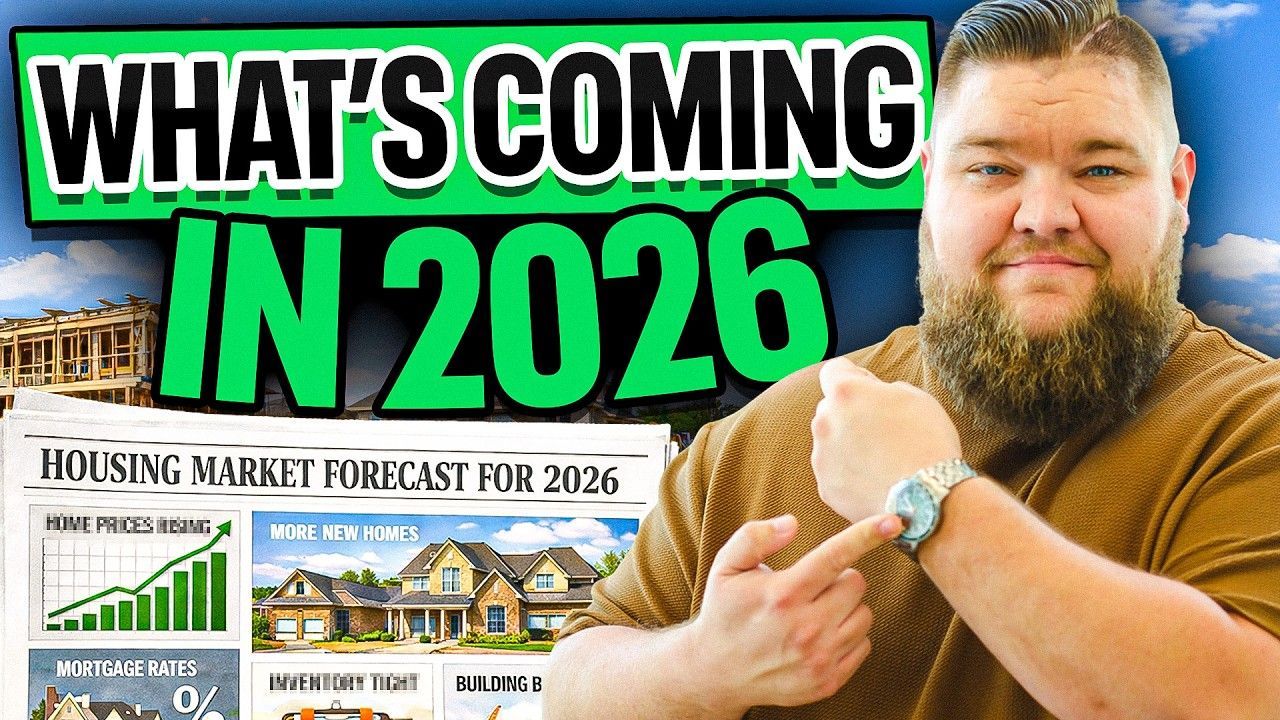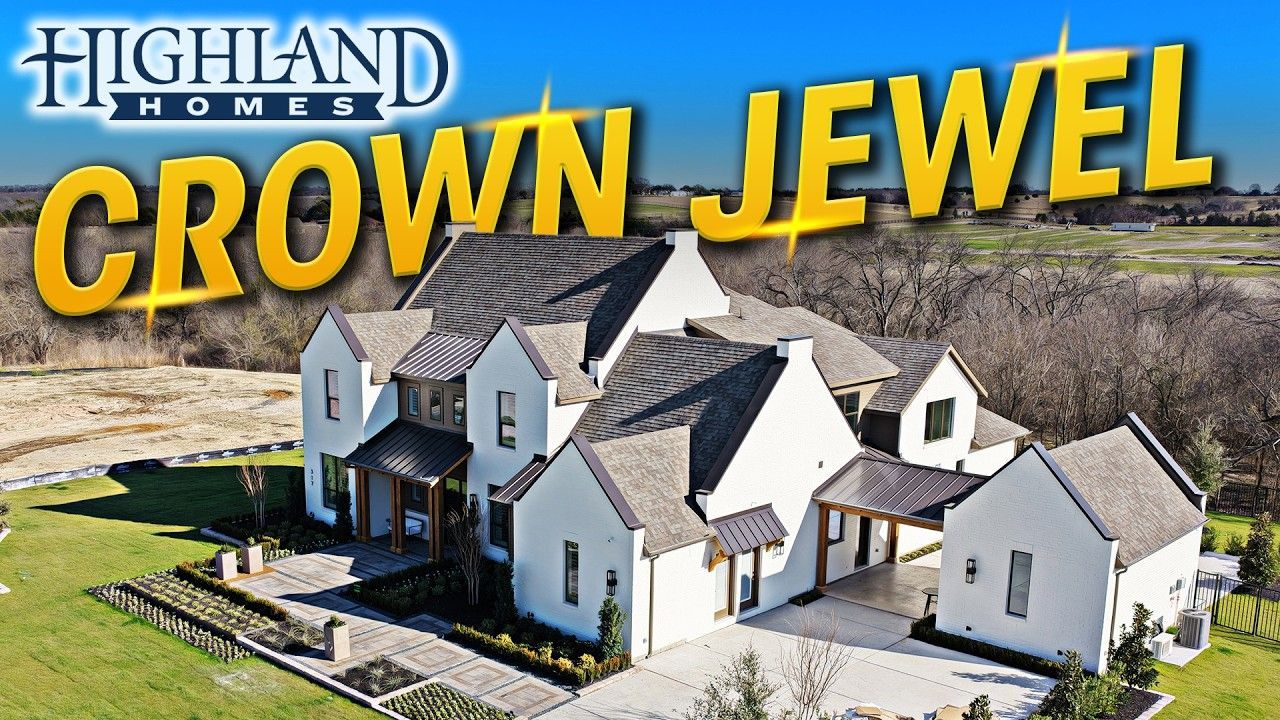What $5,500 a Month Gets You in Rockwall New Construction Best New Build Deals Revealed
If you’ve been wondering what your monthly housing budget will buy you, you’re in the right place. I’m Zak Schmidt, and in this deep-dive guide I break down exactly what a new construction home in Rockwall, TX looks like when you’re targeting roughly $5,500 a month. I bring my on-the-ground perspective for neighborhoods, lifestyle, and floor plans, and Jared Wilson (a preferred lender I work with) brings the numbers and lender-side insight so you get the whole picture: taxes, incentives, payment structures, and the real value behind builder promotions.
Table of Contents
- Why Rockwall? Lakeside Charm, Tight-knit Community, and Options
- Median Prices and Taxes: What the Numbers Say
- Neighborhoods and Product Types: Where to Look
- Builder Lot Sizes: Why 40–70 Foot Matters
- Builder Incentives, Interest-rate Buys, and What “4.99%” Really Means
- What $5,500 a Month Realistically Gets You
- Where the Real Value is: Closeouts, Inventory, and Negotiation
- Life in Rockwall, Texas
- Buy-before-you-sell Options and Transitional Programs
- FAQs About New Construction Homes in Rockwall, Texas
- Wrapping Up: Is Rockwall Right for You?
Why Rockwall? Lakeside charm, tight-knit community, and options
Rockwall has a vibe that’s tough to beat: it feels small-town, but it has everything you need. Restaurants, shopping (Target, Costco, Walmart), a walkable town square, and a popular lakeside harbor — plus good schools and lower-than-you-might-expect tax rates. If you’re searching for a new construction home in Rockwall, TX, you’ll find options from modest single-level plans to large estate-style builds on acreage.
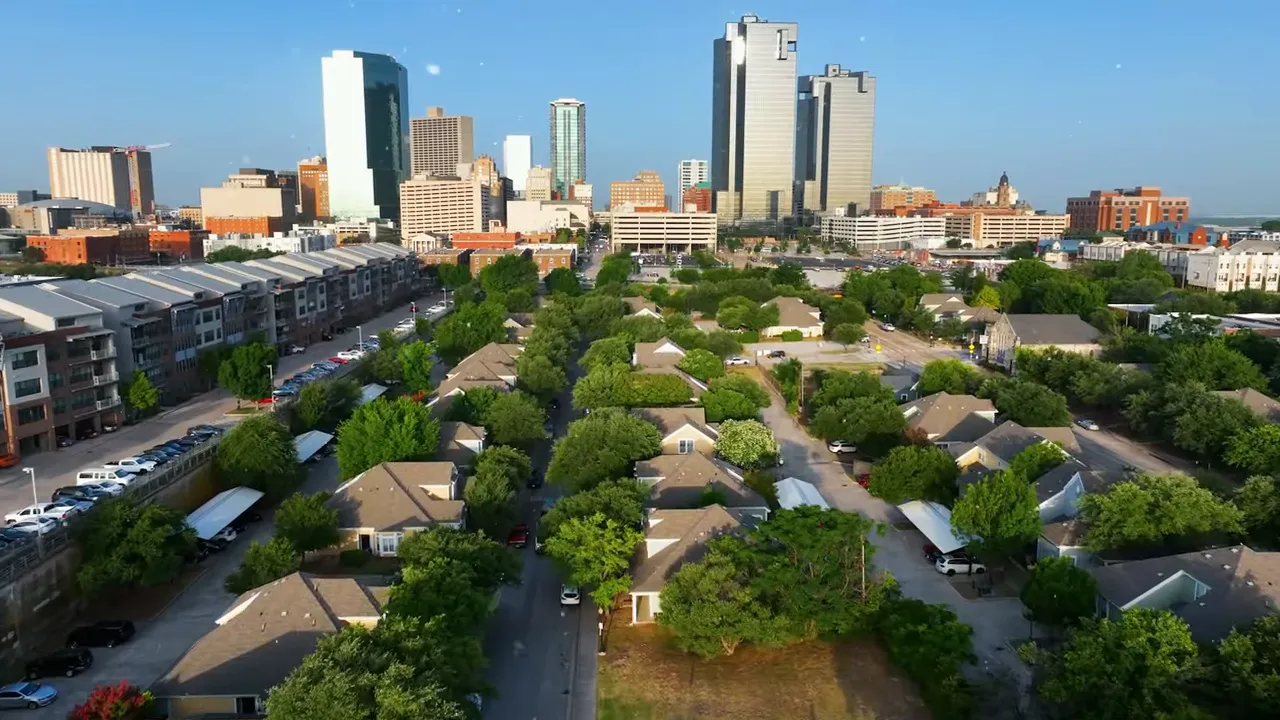
The community pull is real. Once you cross the lake and get past the traffic, Rockwall feels like a place you belong. People identify as Rockwall folks — and that matters. Close-knit neighborhoods, local events, and the square’s dining scene give Rockwall a strong sense of place compared to more sprawling suburbs.
VIEW HOMES FOR SALE IN ROCKWALL, TEXAS
Median prices and taxes: what the numbers say
Let’s start with the solid facts you can use to plan. On the new construction side, the median home price in the city of Rockwall sits around $633,000. If you expand to Rockwall County (which includes places like McLendon-Chisholm, Heath, and parts of Fate), the median dips to about $518,000. Those figures tell you there’s a range of product available, but this isn’t a $300,000 market for new construction.
One of Rockwall’s big advantages is its tax rate. The base property tax level in Rockwall is often around 1.5% (school district, hospital, county combined), and many neighborhoods don’t layer on additional MUDs (Municipal Utility Districts) or PID fees. That means effective tax rates of roughly 1.53% to 1.56% are common — low compared to many other fast-growing DFW suburbs.
Why does that matter? Because most buyers budget around a monthly payment, not an all-in purchase price. A slightly higher purchase price with a lower tax rate can result in the same or even lower monthly outlay compared to a cheaper home with higher taxes. If you’re looking at a new construction home in Rockwall, TX, that tax advantage is an invisible dollar in your pocket every month.
Neighborhoods and product types: where to look
Rockwall isn’t monolithic. You’ll find pockets that feel like small-town historic Main Streets, lakeside resort-like clusters by the harbor, golf-course enclaves, and wide-open acreage where horses still graze. Here are some of the neighborhoods and product types worth noting:
- Town Square & Harbor — Restaurants like Zanata and Fired Fable, plus lakeside patios (Rodeo Goat) make this a social hub.
- Park Hills — Newer sections, a mix of builders, and active acquisitions from out-of-state companies. Great if you want modern plans near parks.
- Sonoma Verde — Builders like Highland, Bloomfield, Perry (and formerly Castle Rock) have 70-foot and 60-foot lots here. A great place for larger lots without going rural.
- Heath & McLendon-Chisholm areas — Acreage, custom builders, and some of the lowest tax burdens in the region.
- Smaller boutique neighborhoods — Places with under 300 homes that can offer more intimate streetscapes and closeout pricing at times.
Want acreage? Drive just east of John King Road and you’ll hit large tracts and horse property. Want walkability and the harbor scene? The town center is where a new construction home in Rockwall, TX blends convenience with lifestyle. Want a golf or country club community? There are multiple courses and clubs around the corridor to explore.
Builder lot sizes: why 40–70 foot matters
Builders are squeezing and stretching across lot sizes. You’ll see everything from 40-foot lot product (narrower, more dense) to 70-foot and larger lots. Why the variance?
- Developer economics: Land is expensive and sellers want to maximize the number of homes per acre.
- Buyer demand: Not everyone can or wants to buy a 70-foot lot — the narrower product fills a large market segment for affordability.
- Market absorption: To keep supply flowing and hit price points, builders use different lot depths and floor plans.
As a buyer, think about lifestyle and resale. If you want space for a pool, toys, and privacy now or later, targeting 60–70-foot lots or acreage will cost more upfront but delivers a different lifestyle. If you prioritize lower monthly payment and proximity to amenities, 40–50 foot product can make sense.
Builder incentives, interest-rate buys, and what “4.99%” really means
One of the most common lines you’ll see on builder marketing is “interest rate as low as 4.99%” or “up to $100,000 in incentives.” Those numbers have real meaning — and real mechanics behind them.
Here’s how to read them:
- Often, the builder has already reduced sales prices in select neighborhoods, which is where the “up to $100,000” language can come from. It’s not a cheque you write; it’s already reflected in list pricing in many cases.
- Builders also buy interest rates. That means they work with lenders to pre-purchase a forward rate commitment. On a representative loan, that can be roughly $20,000 (or more) of builder dollars per purchase to achieve a 4.99% borrower rate versus the market rate if buyers qualify under the program.
- There are often structure choices: the builder either covers closing costs or puts funds into a temporary buy-down (2-1 buy-down, for example).
Tempted by a 4.99% rate on a new construction home in Rockwall, TX? Understand it’s often the result of tens of millions of dollars across communities to lower monthly payments and make homes move faster. Those programs are real, but they have limits (expiration dates, specific loan types, and sometimes income or pricing caps).
Understanding the temporary 2-1 buy-down
A builder-funded 2-1 buy-down gives you lower effective payments for the first two years. It works like this:
- Year 1: Builder subsidizes payments equivalent to a 2% lower rate (so a 4.99% mortgage acts like a 2.99% payment for that year).
- Year 2: Builder subsidizes payments equivalent to a 1% lower rate (so a 4.99% mortgage acts like a 3.99% payment in that year).
- After Year 2: Your payments reset to the contract rate (e.g., 4.99%).
Example: On an estimated $499,000 purchase with a 5% down payment, the baseline payment (principal and interest + estimated taxes and insurance) used in our example is about $3,631 per month. With the 2-1 buy-down, year one savings might be around $546/month and year two savings around $281/month. That savings is funded by the builder and placed into escrow to be applied to your monthly payment.
Important nuance: that buydown money is a subsidy — it doesn’t change the mortgage rate on the underlying loan. It simply pays a portion of your scheduled payment for the first two years. If rates fall and you refinance, many buydowns will allow you to pull unused dollars toward refinance costs; ask your lender to confirm specifics.
What $5,500 a month realistically gets you
When we say “what $5,500 a month gets you,” remember that your monthly number includes principal, interest, taxes, insurance, HOA (if applicable), and any mortgage insurance or PMI. With Rockwall’s tax advantage, you can often get more house for a given monthly payment compared to suburbs with higher taxes or steep MUD fees.
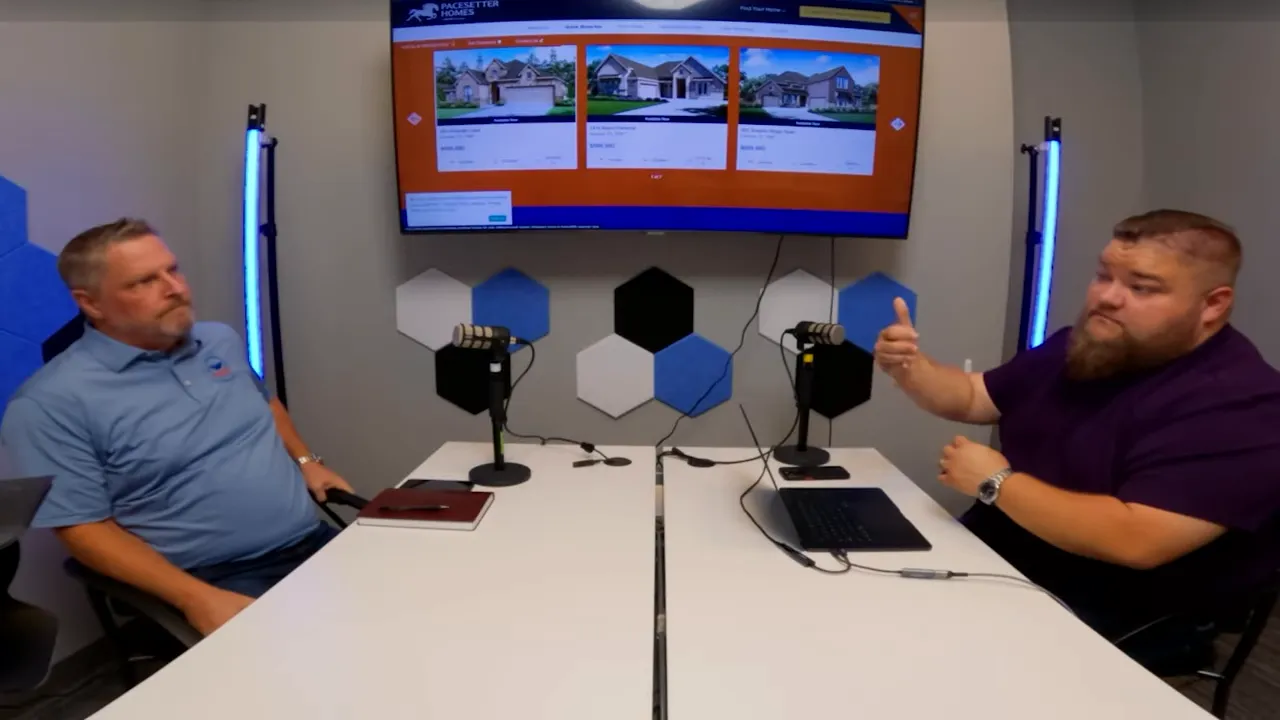
Here’s the practical takeaway:
- A $499,000 new construction home (with a typical 5% down payment and a builder-sponsored 4.99% rate) will often translate to a monthly payment in the $3,600–$3,700 range including taxes and insurance — leaving room in a $5,500 budget for lifestyle expenses, additional savings, or a higher mortgage payment if you want a bigger house.
- If you push into the $600k–$900k range (common in some Rockwall pockets), the $5,500 budget may still cover monthly costs depending on down payment and incentives. The tax savings help maintain affordability.
- Rockwall offers a wide range: you can find four-bedroom, three-bath homes in the $500k range, but there’s also product up into the seven-figure territory if you want acreage, custom features, or golf-course frontage.
Where the real value is: closeouts, inventory, and negotiation
One tactic I always watch for is closeout inventory. When a builder is closing out a neighborhood, the last few homes are often priced aggressively and represent strong value. If you’re flexible on elevation or interior finish choices, these can be great buys.
At the other end of the market, builders with boutique neighborhoods or high-end elevations will hold pricing and features tighter. That’s why it’s essential to know the builder, the neighborhood lifecycle, and what concessions are tied to current market conditions.
Life in Rockwall, Texas
Schools, parks, and lifestyle amenities
Rockwall ISD and Heath schools are widely regarded as strong. Recently the district and schools received top ratings (A-rated performance in many zones), and both the north and south sides of town have their own feeder patterns. The district has also opened freshman centers to reduce the size of the main high school campuses — a welcome step for families that want smaller, more focused transition years for teens.
Parks and recreation are plentiful: Harry Myers Park is a popular spot, and Rockwall has disc golf, waterfront access, and public events on the square. There’s even a small general aviation airport for private pilots nearby. For golfers, Buffalo Creek and other area clubs provide options for players and members.
Traffic, commute considerations, and toll roads
Let’s be blunt: DFW traffic is a fact of life. Rockwall sits to the east of the Metroplex and getting across Lake Ray Hubbard can create bottlenecks. Right now the lake crossing feels like a pain point for many commuters, but the tradeoff is the lifestyle payoff once you’re on the Rockwall side.
Another critical local detail: toll roads. Major corridors like George Bush (SH 190) are toll roads, and many people in the region have monthly toll bills. If you’re a toll avoider, Rockwall still has paths that let you reduce toll exposure, but it’s something to factor into your commute time and monthly transportation costs.
Buy-before-you-sell options and transitional programs
If you’re trying to time selling your current home with buying a new construction home in Rockwall, TX, there are third-party programs that can bridge the gap. These services can provide temporary cash advances or guaranteed buyout offers to let you purchase before your current property closes. Options range from guaranteed buyouts to programs that front equity while your house stays listed.
Important: these programs are complicated and have tradeoffs. They can give you peace of mind and reduce moves, but they come with fees and contractual terms to understand fully. Work with your realtor and lender to evaluate whether a bridge program fits your situation.
Customization, building on your lot, and custom builders
If you value customization, Rockwall offers custom builders who will build on your lot — Partners in Building, Jay Anthony, Parker, and other local custom shops are active in the market. That gives buyers the flexibility to secure larger acreage, bespoke features, and a home tailored to their lifestyle.
Custom builds come with a different timeline and cost profile than tract builders, but if your budget targets a big house or a particular site (lake view, acreage, etc.), custom might be the right route in Rockwall.
How to approach shopping for a new construction home in Rockwall, TX
- Define your monthly budget first (your monthly payment comfort = how big of a house you can afford).
- Talk to a lender who understands builder programs — many of the best incentives require specific lender partnerships or loan setups.
- Map neighborhoods to lifestyle: town square vs. harbor vs. acreage vs. golf-course community.
- Watch for closeouts and model-home pricing — these are often where you find the best value.
- Ask builders about what their advertised rates include and whether incentives reduce price vs. rate buys.
SEARCH NEW CONSTRUCTION HOMES IN DFW
FAQs About New Construction Homes in Rockwall, Texas
How much is the median price for a new construction home in Rockwall, TX?
On the city side, the median new construction home price is roughly $633,000. For Rockwall County overall (including Heath and McLendon-Chisholm), the median is about $518,000. Those numbers vary by neighborhood and product type.
Are property taxes high in Rockwall?
No — Rockwall’s base property tax level is relatively low compared to many DFW suburbs. Base rates often fall around 1.5%, and many neighborhoods don’t add MUDs, meaning effective rates near 1.53%–1.56% are common.
What does “4.99% interest” from a builder actually mean?
In most cases, the builder has purchased a forward rate commitment from their lenders to subsidize the rate for buyers. That investment can be substantial — often around $20,000 per loan — and is part of the builder’s marketing strategy to improve monthly affordability.
How does a 2-1 buy-down work?
A 2-1 buy-down is a temporary subsidy where the builder funds payment reductions for the first two years (equivalent to a 2% rate reduction in year one and 1% in year two). After that period, payments revert to the contract rate. The subsidy is placed into escrow prior to closing.
Can I buy a new construction home in Rockwall, TX if I need to sell my current house first?
Yes. There are buy-before-you-sell bridge programs and third-party firms that can front equity, offer guaranteed buyouts, or provide other transitional financing. These programs are helpful but come with fees and contractual obligations, so review terms carefully.
Where are the best bargains for new construction homes in Rockwall?
Closeout inventory is often the best source of bargains — the final homes in finished neighborhoods tend to be priced aggressively. Also watch for builder promotions (rate buys, price reductions) and neighborhood lifecycle changes that create opportunities.
Wrapping up: is Rockwall right for you?
Rockwall holds a unique position in the DFW market. If you want that lakeside feel, a small-town energy with modern amenities, lower tax rates, and a range of product from $400k+ to multi-million-dollar estates, a new construction home in Rockwall, TX should be high on your list.
For families, the combination of strong schools, fresh neighborhoods, and lifestyle amenities is a major draw. For buyers focused on monthly payments, Rockwall’s lower tax burden and builders’ current incentive strategies make it possible to achieve significant value for a given monthly budget.
If you want help translating your monthly target into neighborhoods, floor plans, and lender options, reach out — an experienced realtor and lender team can show you where those $5,500 months deliver the most value. Whether you’re considering a single-level plan, a large family home, or custom acreage, there’s a path to make Rockwall home.
"You don't buy homes by the big number — you buy homes by the monthly budget number." — Zak Schmidt
Thanks for reading. If you’re thinking about a new construction home in Rockwall, TX and want to see where $5,500 a month takes you in specific neighborhoods and floor plans, I’d love to help map options and run numbers with Jared Wilson so you see the real deal behind builder ads and incentives.
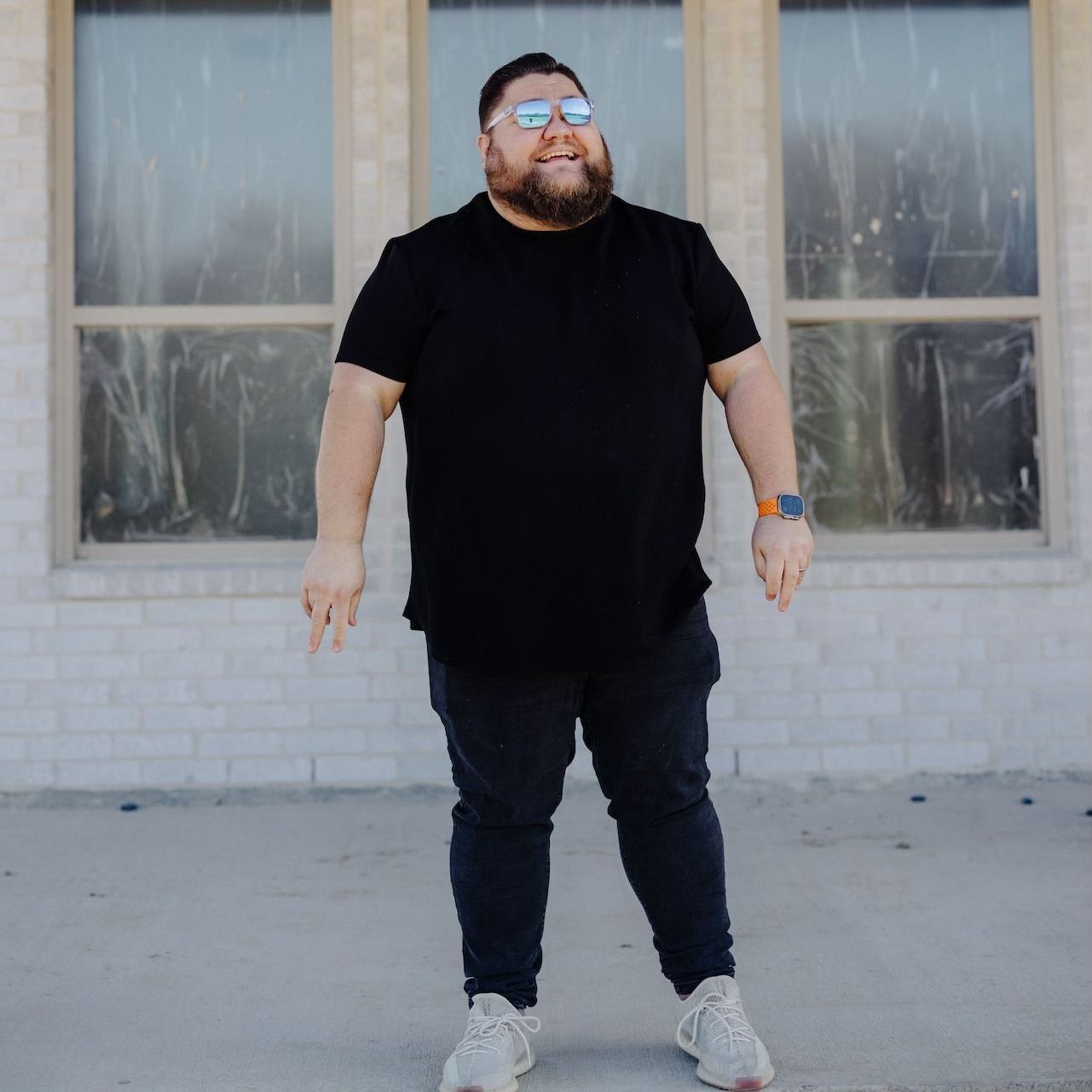
Zak Schmidt
From in-depth property tours and builder reviews to practical how-to guides and community insights, I make navigating the real estate process easy and enjoyable.


